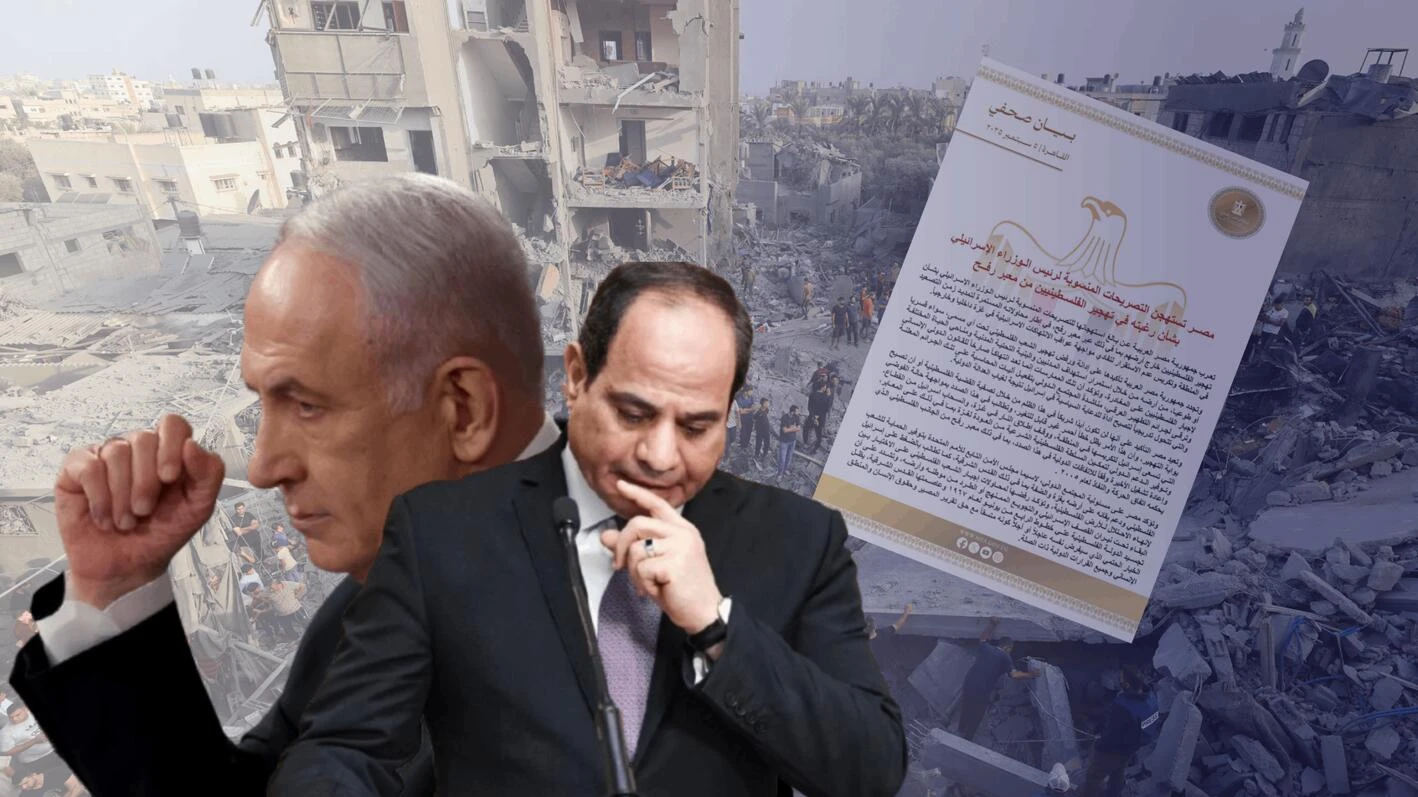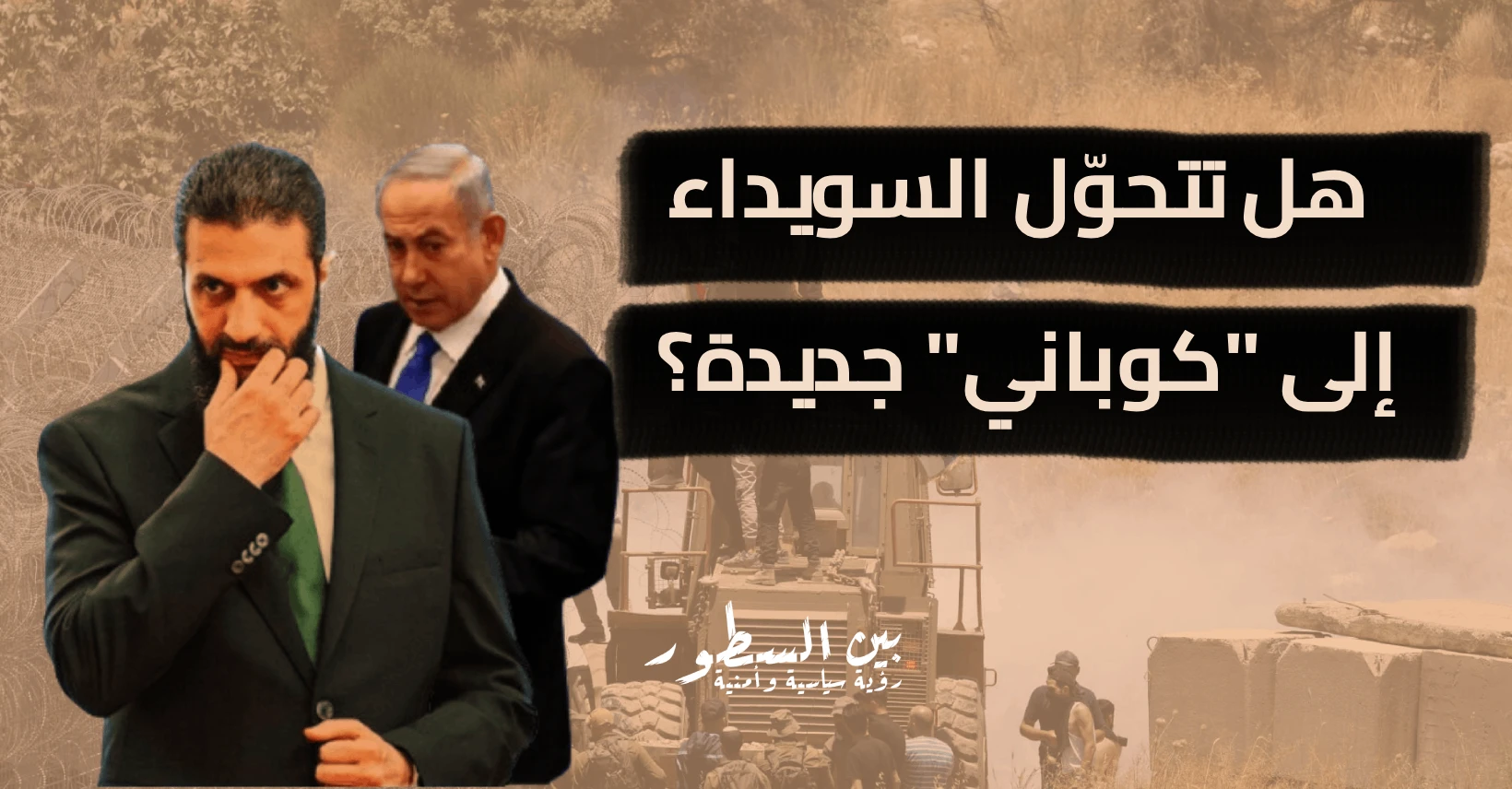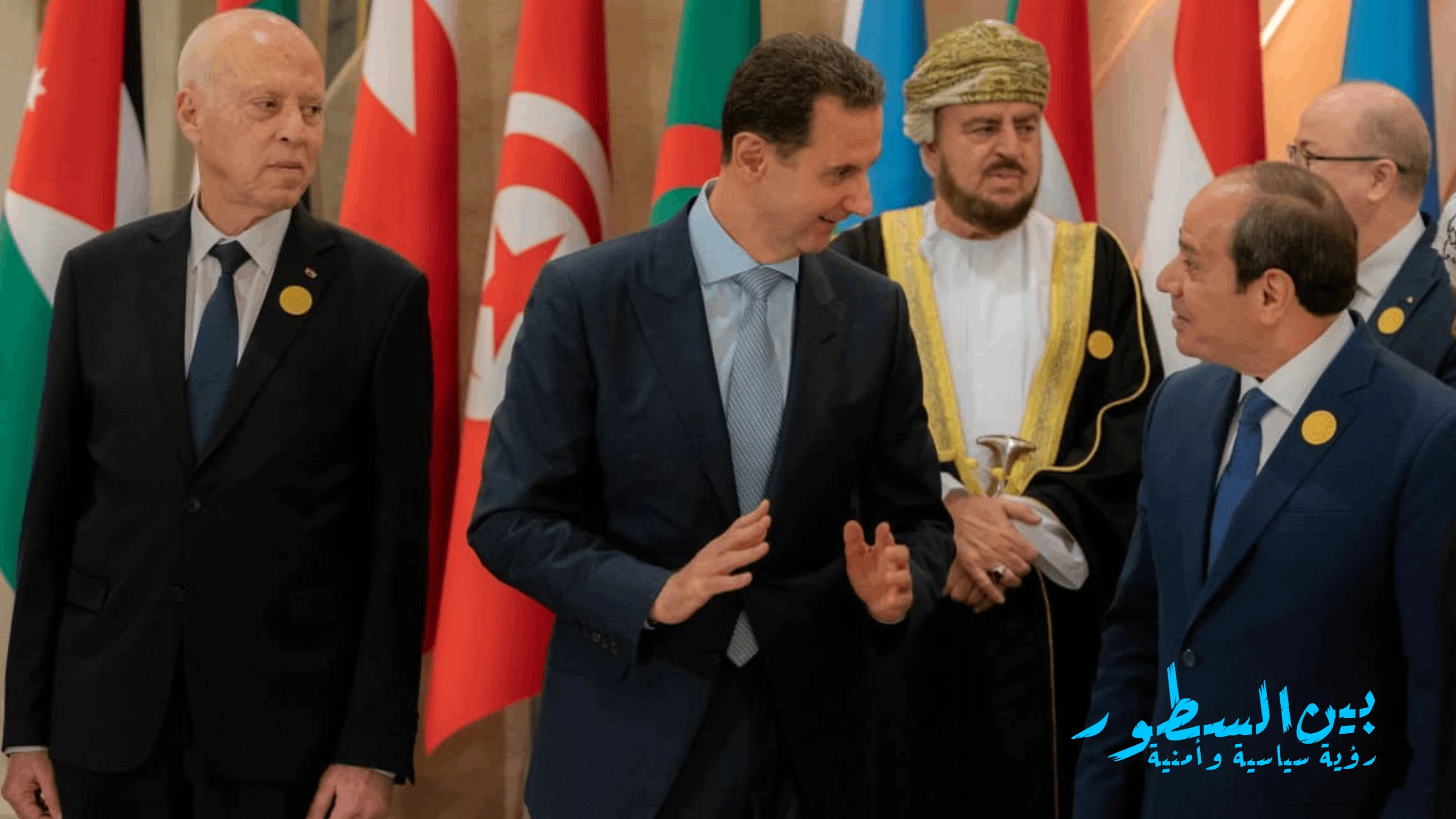Opinion Piece: The Egyptian Foreign Ministry's Statement… Between Empty Condemnation and Washing Hands
This is an AI-generated English translation. The original text is in Arabic.
On September 5, 2025, the Egyptian Ministry of Foreign Affairs issued a statement commenting on the Israeli Prime Minister's remarks regarding the displacement of Palestinians through the Rafah crossing. Notably, the statement described these remarks as "attributed," despite being made publicly in a clear and unambiguous manner. A closer look at the entire statement reveals the essence of the problem: a deliberate choice of convoluted language that exposes the Egyptian regime's hesitation and fear of direct confrontation.
This is not a mere linguistic detail, but an entry point that reveals the nature of the entire statement, where the same characteristics recur: evasion in words, absence of decisive positions, and reliance on condemnation rather than action.
"Attributed": A Word that Reveals Policy, Not Coincidence
When the Ministry of Foreign Affairs chooses to describe public statements with the term "attributed," it is not taking a position but rather engaging in political evasion. This word does not reflect a commitment to accuracy as much as it reflects a desire to leave room for future denial, as if Cairo is keeping a door open for withdrawal from any subsequent commitment.
In such carefully crafted statements, it is not a matter of a slip of the tongue or a drafting error, but a complete approach to managing discourse where there is a pretense of objection from afar while avoiding any explicit confrontation or direct attribution of responsibility.
Condemnation Without Action
The statement is filled with phrases of condemnation and denunciation: "denounces," "rejects," "affirms," "condemns," but when we look for any practical steps Egypt will take regarding what Israel proposes, we find nothing.
Egypt hinted in its statement, which tried to appear strong on the surface, at only verbal rejection. We did not hear any threat to freeze relations with Tel Aviv, or any movement in the Security Council, or even a review of the peace treaty and gas and energy agreements. Ironically, Israel itself stated that it would review these agreements, reinforcing the impression that it is the party controlling the course of events, not Egypt.
Moreover, Egypt appeared in the statement as if it were placing the responsibility on the "international community," presenting itself as a neutral party observing the crisis from afar, rather than as a state directly concerned with its borders, future, and national security.
"Egypt Will Not Be a Partner": A Formulation for Evasion, Not Confrontation
In my opinion, the most dangerous part of this statement is the phrase: "Egypt will not be a partner in any endeavor aimed at liquidating the Palestinian cause."
This phrase is vague; it appears to be a firm rejection of displacement, but in reality, it carries all the meanings of evasion. It does not say: "We will not allow," nor does it say: "We will prevent," but merely states that Egypt will not participate in this process.
In other words: If displacement occurs by force or Israeli pressure, the Egyptians have already announced that they will only "not be partners" and that they will not accept displacement to Egypt, but there is no objection to it happening anywhere else, and we will not stop it, but will only continue to condemn and denounce it.
The presence of this phrase in the statement is a preemptive declaration that Egypt will not lead the confrontation and will not bear its costs, but will remain on the sidelines observing what happens.
The Ambiguity Surrounding the Rafah Crossing
The statement repeatedly mentioned the rejection of displacement "through the Rafah crossing," but it does not clarify how the Egyptian state and its regime would respond if Israel imposed this scenario by force. Will Egypt close the crossing with military force? Will it consider any attempt to breach a threat to its sovereignty? And what if Palestinians are forced to cross, will the authorities confront them with force? The silence regarding these questions in all the ministry's statements and the remarks of Egyptian officials is intentional, as Egypt wants to show verbal rejection without any practical commitment that restricts its future options.
The Contradiction Between Harsh Tone and Soft Language
In one part, the statement speaks of "ethnic cleansing crimes," and then in the next line appeals to the international community to "stop the aggression" and "support the Palestinian Authority." This contradiction between the severity of the accusation and the softness of the demands weakens the Egyptian position and reveals that it is a mixture of contradictory messages, half of which is directed at the angry domestic audience, while the other half reassures the apprehensive outside world.
Calling on the International Community: A Retreat Forward
As usual, the Egyptian regime places all its weight on the "international community," the "Security Council," and the "International Criminal Court," as if the Egyptian regime has no leverage. In reality, Egypt possesses many leverage points in the pressure file, such as the Camp David Accords, security coordination, gas and energy agreements, and even the Suez Canal.
However, Cairo prefers to rely on diplomatic pleading to avoid any confrontation with Israel or its supporters, which leads us to question again the extent of Egyptian influence in the region, and the reasons behind the regime's fear of angering the Israelis with direct statements, at a time when Netanyahu does not hesitate to state whatever he wishes.
Conclusion: A Statement that Reassures Israel More than It Threatens It
Between the lines, the Egyptian statement is not a message of threat but a message of reassurance. Egypt clearly states: We will not fundamentally oppose the principle of displacement, and we will not take any real steps to stop it; we only hope that it does not occur across our borders. Beyond "denunciation" and "appeals," we will not go.
Even when we describe the crimes as ethnic cleansing, we do so in a rhetorical language devoid of any actual plan.
The statement reveals that the Egyptian regime is trying to appease the angry street with verbal rejection, while at the same time sending reassuring signals to Israel and the world: We will not be partners, but we also will not stop you by force.








